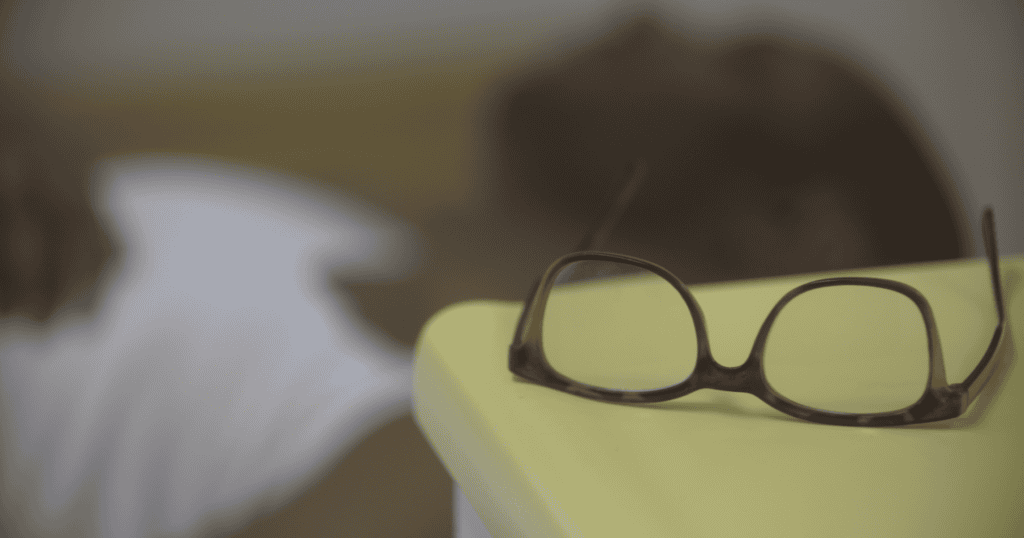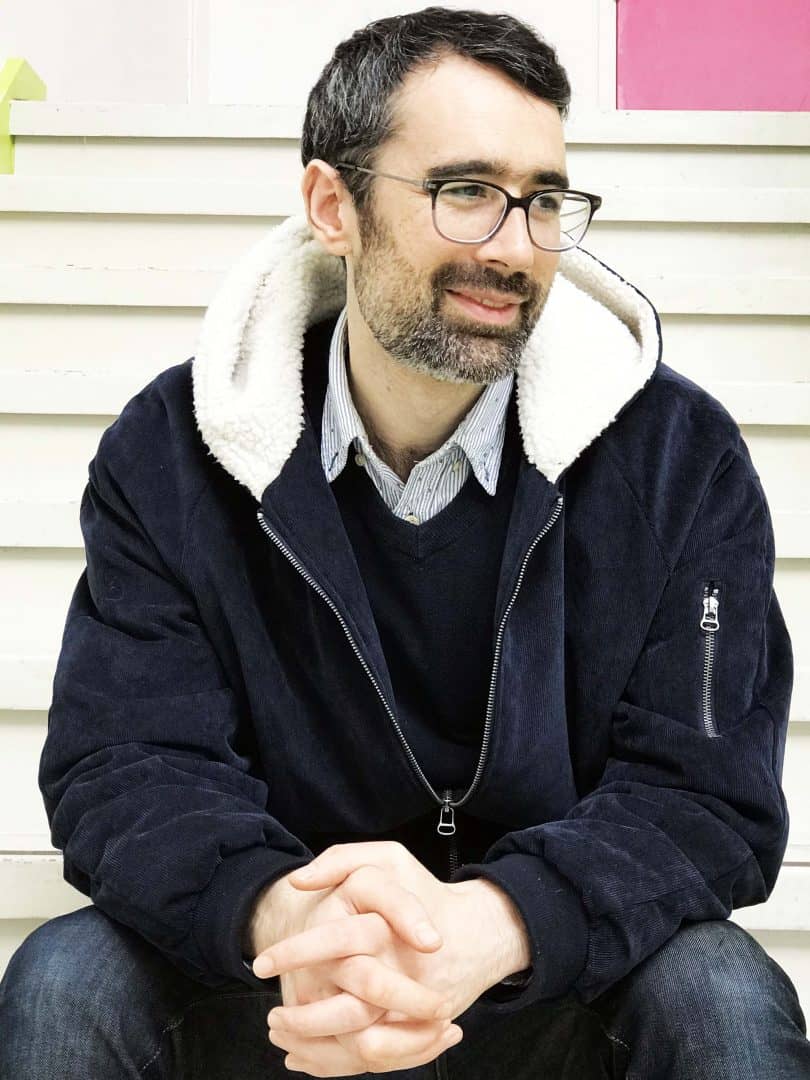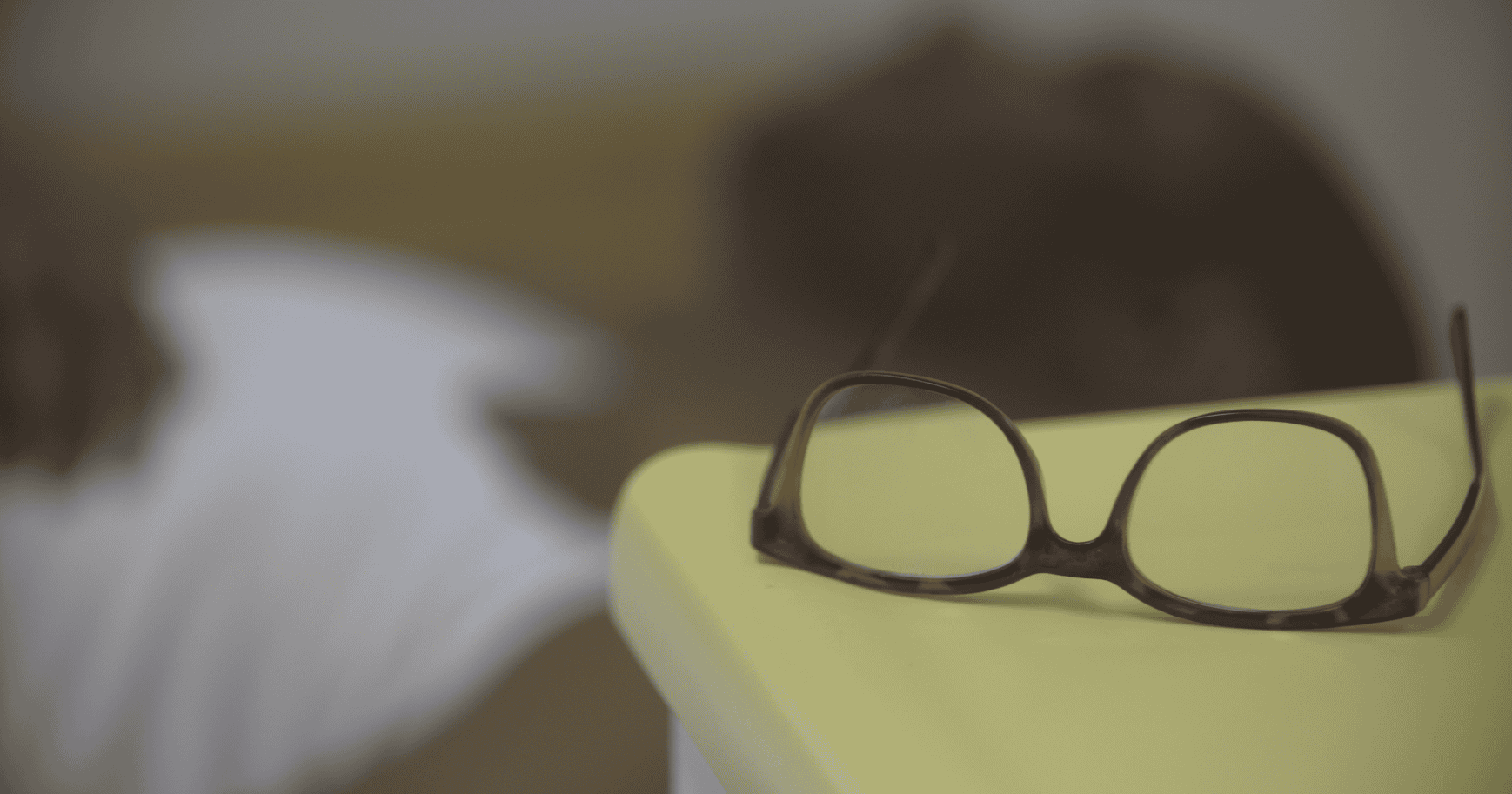
Q&A: Ariel Nasr
Published June 11, 2019 | By Inspirit Foundation
Abousfian Abdelrazik, a Sudanese-born Canadian citizen, fought for six years to return home to Canada after the US wrongly accused him of having ties to Al Qaeda. In the Long Way Home, filmmakers Ariel Nasr and Aisha Jamal chronicle Abdelrazik’s visit to Sudan in 2006, the subsequent imprisonment and torture by the Sudanese government, and the Canadian government’s denial of his travel papers to return to Canada. Years of campaigning by human rights activists eventually brought Abdelrazik home. Inspirit had the opportunity to support The Long Way Home through a grant for the documentary’s impact campaign in 2017. We recently sat down with Ariel Nasr.

Q: How did you come to be a filmmaker?
AN: Good question. I didn’t intend to be a filmmaker until I finished college. At that time, I was involved in activism around the war in Afghanistan and asking a lot of questions about whether Canada’s presence in Afghanistan was a just presence or whether there were violations of human rights of Afghans going on. [I wanted] to explore some of those issues in a way that brought a little bit more of an Afghan perspective. I had access to the Afghan community because my father is Afghan. I started asking all those questions within the Afghan community and that was the starting point for me to create documentaries that would start building some bridges and to create more meaningful dialogue around the question of Canada’s role in Afghanistan. There was a lot of media that was being seen in the west, specifically in Canada around Afghanistan, that was quite distorted. Of course, any media is going to have a perspective and any piece of media will simplify reality. Anything that represents reality is a simplification of reality, right? But the media about Afghanistan, I felt, was so distorted that it became a calling for me to try to create something that was more honest by going to Afghanistan, asking the questions that I had, and weaving those into a cinematic format that I could present to people in Canada and around the world.
Q: Who were you making those films for and why?
AN: As time went by I started to realize that I had audiences that were important for me. My core audience was actually Afghans in the diaspora—those of us, who for one reason or another, have a connection to Afghanistan through our families and our heritage, but don’t live in Afghanistan. Whether we live there, or like me, were born somewhere else, that’s where our roots are from; we have a need for that connection. Since I came back to Canada—I lived in Afghanistan for almost four years between 2008 and 2012—I was moved to tell stories about Canadians because I saw some of the same things, the same systems in Canada that I had at work in Afghanistan with the same symptoms and the same results. One of them was the story of Abousfian Abdelrazik whose human rights were violated so seriously by the Canadian government. That’s the first film that I made in Canada after working on a few projects in Afghanistan.

Q: There are many cases of human rights violations that are just as urgent. How did you land on Abousfian Abdelrazik’s story?
AN: I was working with a friend of mine named Aisha Jamal and we’d been approached by Hot Docs to do a story that addressed human rights in Canada through the lens of the Canadian Charter of Rights and Freedoms. We spent some time with the Charter and thought about the issues that were most important to us. I guess because both of us are diaspora Canadians who have families who, post-9/11 particularly, were impacted in specific ways by rising Islamophobia. So the issue of mobility rights was very interesting to us in that context. We started to look for a story that addressed that. Through a conversation with a human rights lawyer in Ottawa we landed on that story. When we heard that story, we both felt moved to try and address it through a documentary. We met with Abousfian and learned a little bit more about him. It raised so many questions for us.
Q: Why did you feel it was important for Canadians to hear his story?
AN: I think the biggest reason why we felt it was important to make that film was because there was no media about Abousfian that told his story that was really satisfying to us. As we got deeper into it, we realized there was another story—there was the story of the activist who helped him come home. That was really wonderful to discover. We wanted to put that on the screen too so we talked to one of the activists, a woman named Samaa Elibyari in Montreal; she’s one of the activists who really pursued that case once people knew that Abousfian was trapped in Sudan. There was outrage and there was a real desire to support him because one of the big things about mobility rights is, it is really about governments not having the ability to keep people in places where there is no oversight from other citizens and other organizations. What we learned was that, even historically, this [is] a human rights issue because banishment has been used as a tool against political dissidents for many centuries. Once somebody is out of the country where their rights apply, they essentially lose a lot more than their human rights. So mobility right is essential to having other rights. If you can’t come home, there are a lot of your rights you can’t access. You don’t have your property, you don’t have your family, you don’t have your right to due process, you don’t have any of that.
Q: What did you find most surprising about Abousfian Abdelrazik’s story?
AN: It was very clear that Abousfian, a Canadian citizen, was not considered a full Canadian citizen by Canadian officials who were involved with his case. On some moral level they didn’t believe in his citizenship enough to give him the same rights. They attempted to deprive him of those rights. It’s not just surprising—it’s shocking. It’s totally shocking. They’re there—the embassy is there in Khartoum to serve the Canadian people and he’s a Canadian citizen. The embassy’s complicity in keeping him from coming back to Canada is not just surprising, it’s shocking. Once he forced his way into the embassy or, I should say, refused to leave the embassy, when he had already been imprisoned several times by the Sudanese authority and knew that he would be imprisoned again if he didn’t have some recourse to some kind of asylum, so then he refused to leave the Canadian embassy. Even then he wasn’t able to get his travel documents which is a basic right; it’s a mobility right. Then he was also forced to stay inside the embassy because had he left the embassy he would not have been allowed to return. [He] lived inside the embassy for 18 months [and] was given a bathroom off of the pool to live in. He literally lived in the bathroom for several weeks until his lawyer spoke to the embassy about it, then he lived inside the gym but the embassy did not make the effort to give him what would normally be considered proper accommodation or to protect him so he was forced to live as though he was not a full Canadian citizen entitled to all the rights that we’re all entitled to.

Q: Did his circumstances change or improve once he was back in Canada?
AN: When he came back to Canada it’s surprising that he’s not been compensated, and that the government hasn’t been held accountable legally. They were forced to bring him back by the courts, but they weren’t forced to provide him with any compensation for violating his human rights and for all the suffering that he incurred and for parts of his life that he lost because of the Canadian government’s action. So that was pretty shocking. And then he had a trial scheduled finally after many years which coincided with the screening of this film. Through the grant that was provided by Inspirit, we were screening the film on the eve of the trial [when] the Canadian government appealed to the judge to stay the trial indefinitely because they claimed that they needed to review the evidence. It’s been many years—a full decade has gone by since this happened. All these things are disappointing and they also make a person feel less secure about your own rights and freedoms.
Q: It’s a terrifying thought that there would be no recourse for you if you’re ever in that situation.
AN: Yes, it’s up to ordinary citizens to keep an eye out for this kind of abuse and act on it, otherwise [Abousfian Abdelrazik] could still be in Sudan. He could be lost forever, he could be gone and that would not just impact him but his friends and family back here. He has children, his community.
Q: What kind of impact were you hoping to see by sharing Abousfian Abdelrazik’s story?
AN: We wanted, to some extent, to fill this gap in telling his story where his perspective wasn’t represented in the media in a way that was accessible to people. This was a way to tell that story to an audience that might not know his story or might have heard a little bit about his story but from the government’s perspective, not from his perspective. We wanted to give him a chance to tell his own story and we wanted to tell the story of the activist who helped to bring him home because we wanted to create some inspiration for people to do the same thing—to protect each other’s rights. That would be really worthwhile. I don’t think the activists involved get enough credit, not that they were looking for credit, but it’s important to tell those stories because it gives an example for what to do when things go wrong. The courage of the activists was inspiring because they were told that he was a terrorist, although he’s been exonerated and there’s no evidence that’s been disclosed that he was ever a terrorist.
Q: Are there other aspects of Abousfian Abdelrazik’s story that you would have liked to explore further?
AN: Something we would have probably been able to address in a longer film [is] how this case was represented in the media in a manner [where] he was tried in the media to some extent. There was a civil suit against CSIS because there was defamation. In other words, CSIS influenced members of the media to publish their side of the story based on discredited evidence that wasn’t allowed in the court processes because it doesn’t have weight. One of the things that’s really important is that people be a little bit cautious about the assumptions that they make about people’s guilt. It’s important to watch out for each other’s rights, in general. It’s important to watch out for the rights of other citizens to make sure that their rights aren’t being abused by our government. It’s sad that one has to do that but it shows that it is a reality. There are so many of these cases that are settled out of court with nondisclosure agreements so people have no sense how many of their fellow Canadians have been victimized by the government, whose rights have been abused by the government in ways that are easy to show in court. The government has no interest in having those cases go to trial and publicized and the victims aren’t often in a situation where they can afford emotionally or financially to go through that process. So they accept an out-of-court settlement and they sign an NDA (non-disclosure agreement) and they agree not to talk about it. Even with Abousfian’s case, after that court case they were awarded a settlement for some of the media that was influenced by CSIS intentionally; CSIS settled and he can’t talk about that. So these kind of out-of-court settlements with NDAs, while they alleviate the victim’s suffering, they don’t allow Canadians to get an accurate picture of how many of their fellow citizens are being victimized or who they are or what exactly the systems are that are making that happen.
This interview has been edited for length and clarity.
Don’t forget to check out our past Q&As with Tasha Hubbard, Denzel Sutherland-Wilson, Akio Maroon, Ilyas Gora and Walking With Our Sisters Toronto.